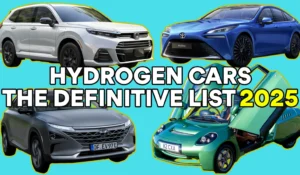US and China lead G20 in hydrogen development, says Sheffield study

A new study from the University of Sheffield has identified the United States and China as the clear frontrunners in the race to develop hydrogen economies within the G20.
Published in Renewable and Sustainable Energy Reviews, the research uses a novel Weighted Scoring Model (WSM) to gauge each country’s progress in hydrogen legislation, investment, and strategic planning.
The results place the US and China in a league of their own, each earning the highest maturity score – 10 out of 10 – thanks to robust national policies, sizeable funding, and formally updated hydrogen standards.
Yet, while they may be setting the pace, the study shows many other G20 members have significant gaps to close if hydrogen is to become a cornerstone of the global clean-energy transition.
A tale of two leaders
Using the WSM approach, researchers scored G20 nations from 1 (lowest) to 10 (highest) based on how well they have established:
- Legislation/standards – The presence of clear legal frameworks and technical benchmarks for hydrogen production, distribution, and use.
- Investment – Public and private sector spending on hydrogen R&D, infrastructure, and commercialisation.
- Strategy & future plans – Detailed roadmaps or policies outlining how hydrogen will help meet national and international climate targets.
On all counts, the US and China came out on top, buoyed by strong government endorsements, major allocations for hydrogen projects, and up-to-date standards that address safety, purity, and emissions thresholds.
Professor Lenny Koh, Director of the Advanced Resource Efficiency Centre at the University of Sheffield, stated: “Hydrogen fuels are seen as being key to us shifting away from fossil fuels and cutting carbon emissions, however our research has found that the G20 varies significantly in the progress each nation is making.”
Koh further emphasised the need for a global standard, adding: “One key thing that the G20 could do is create internationally recognised standards, which would help establish a unified market.”
Mixed results and gaps
Close behind the US and China were the UK, the EU, and Canada, which also scored favourably.
Yet a cluster of nations – including Mexico, Saudi Arabia, Indonesia, and Turkey – received the study’s lowest maturity scores, indicating minimal legislative frameworks or financial commitments for hydrogen.
Several countries demonstrate uneven performance. Japan, for instance, ranks highly for its comprehensive hydrogen strategy yet lags in actual investment and formal standards.
Similar inconsistencies appear in Brazil, South Africa, Russia, Argentina, and India – a patchwork of strong policy intentions in some areas but limited follow-through in others.
Dr. Moein Shamoushaki, Research Associate at the University of Sheffield’s Management School, explains: “The examination by the Sheffield team can help G20 nations see the gaps in their hydrogen economy and inform their future investments and policies.”
Shamoushaki further notes: “This targeted investment is crucial in making legislation around hydrogen effective.”
Patchwork standards pose a threat
A central finding of the Sheffield research is the lack of consistent hydrogen standards across the G20.
Only China, the US, and the UK have recently updated guidelines, while others – such as Argentina, France, and Italy – are making progress but have yet to finalise cohesive frameworks.
A larger group of G20 members – including Brazil, India, Indonesia, Japan, Mexico, Russia, Saudi Arabia, South Africa, South Korea, and Turkey – still has no formal hydrogen standards in place.
This fragmentation, the study argues, creates deep uncertainty around:
- Definitions and classifications – Deciding what qualifies as “green,” “blue,” or “grey” hydrogen.
- Purity levels – Standardising acceptable impurity thresholds to protect fuel cell performance.
- Safety regulations – Addressing transport, storage, and refuelling protocols for high-pressure gases.
- Infrastructure compatibility – Harmonising pipelines, refuelling stations, and storage facilities.
- Certification and emissions tracking – Establishing ecolabels and transparency for hydrogen’s carbon footprint.
Professor Koh explains: “This should begin with a clear definition of hydrogen and standardised emission thresholds to reduce confusion among stakeholders involved in establishing hydrogen economies throughout the G20.”
Why standards matter
Beyond the immediate logistical and safety concerns, an internationally recognised hydrogen standard is seen as essential for:
- Attracting investment – Investors often cite regulatory ambiguity as a top risk. Clear rules can unlock funding for infrastructure and R&D.
- Accelerating innovation – A consistent approach allows manufacturers and technology developers to plan for global compatibility, ensuring economies of scale.
- Meeting climate goals – Proper labelling and emissions accounting help countries align hydrogen development with net-zero targets and UN Sustainable Development Goals (SDGs), especially SDG 7 (affordable and clean energy) and SDG 13 (climate action).
A call for unified action
While the study lauds the strong leadership shown by the US and China, it warns that a “go-it-alone” approach could isolate certain markets and leave cross-border opportunities untapped.
The authors advocate for a collective G20 framework, starting with a clear definition of hydrogen and standardising emission thresholds.
They also outline policy priorities:
- Long-term policy signals and targets – Setting national hydrogen mandates or blending obligations.
- Creating demand incentives – Offering tax credits or rebates for hydrogen use in transport, industry, and power generation.
- Mitigating investment risks – Deploying loan guarantees and other financial tools to de-risk early-stage projects.
- Supporting R&D and knowledge sharing – Funding demonstration projects and exchanging data on best practices.
- Promoting standardisation – Eliminating regulatory barriers to open, competitive international markets.
Dr. Shamoushaki reiterates: “The examination by the Sheffield team can help G20 nations see the gaps in their hydrogen economy and inform their future investments and policies.”
Looking ahead
The University of Sheffield study arrives at a critical juncture, as more governments adopt or refine climate commitments in line with net-zero ambitions.
Hydrogen stands out as an incredibly versatile solution for especially decarbonising sectors that are hard to electrify – such as heavy industry, aviation, and shipping – but only if nations work in concert to create a coherent market.
The message is clear: the technology is ready, investor interest is growing, but policies remain patchy.
As governments prepare to ramp up green hydrogen production and scale new infrastructure, standardisation across the G20 could be the linchpin that pushes hydrogen from a promising clean-energy option to a global mainstay.
The full study, Novel Maturity Scoring for Hydrogen Standards and Economy in G20, in Renewable and Sustainable Energy Reviews can be accessed here.
Whether the G20 seizes the moment to unify hydrogen standards may well determine how quickly – and how smoothly – the world transitions to a hydrogen-powered future.










